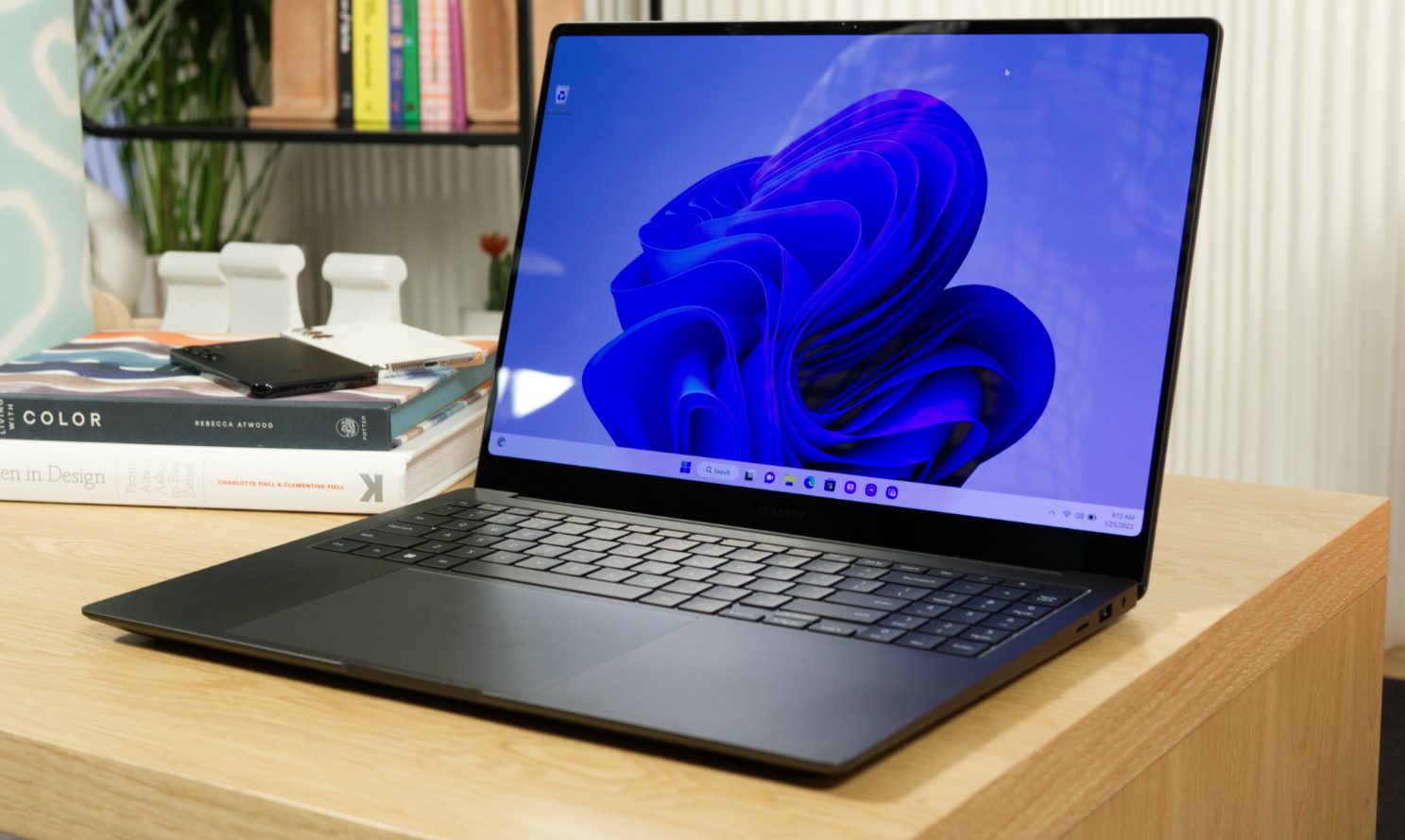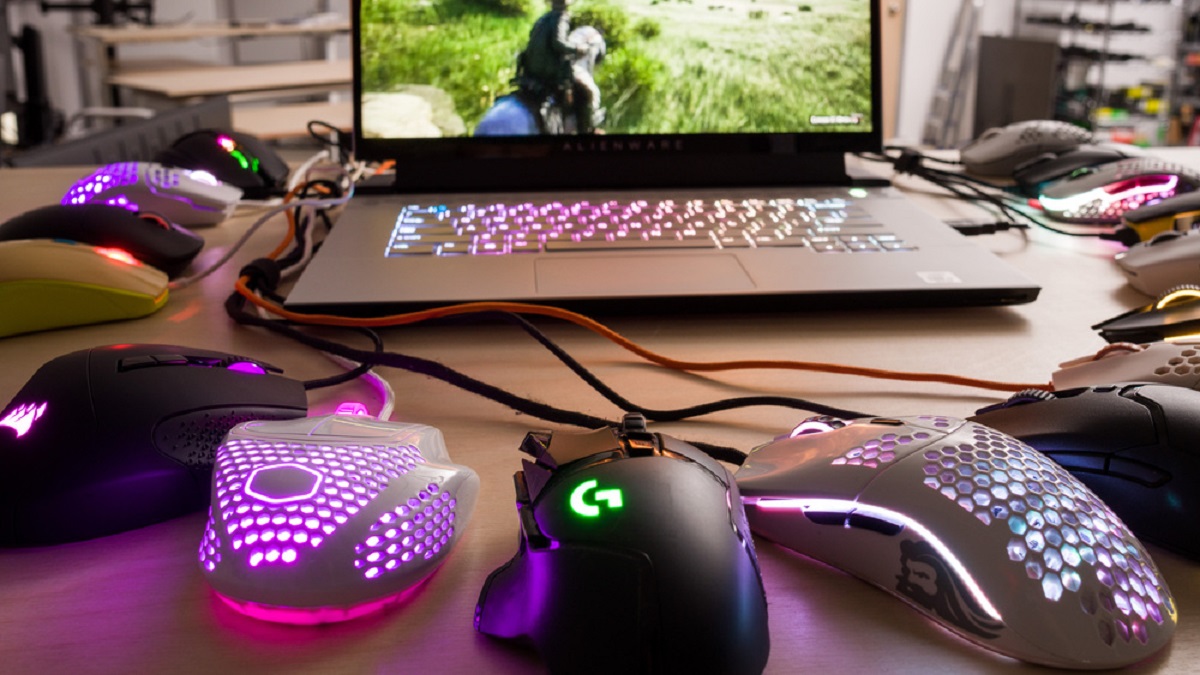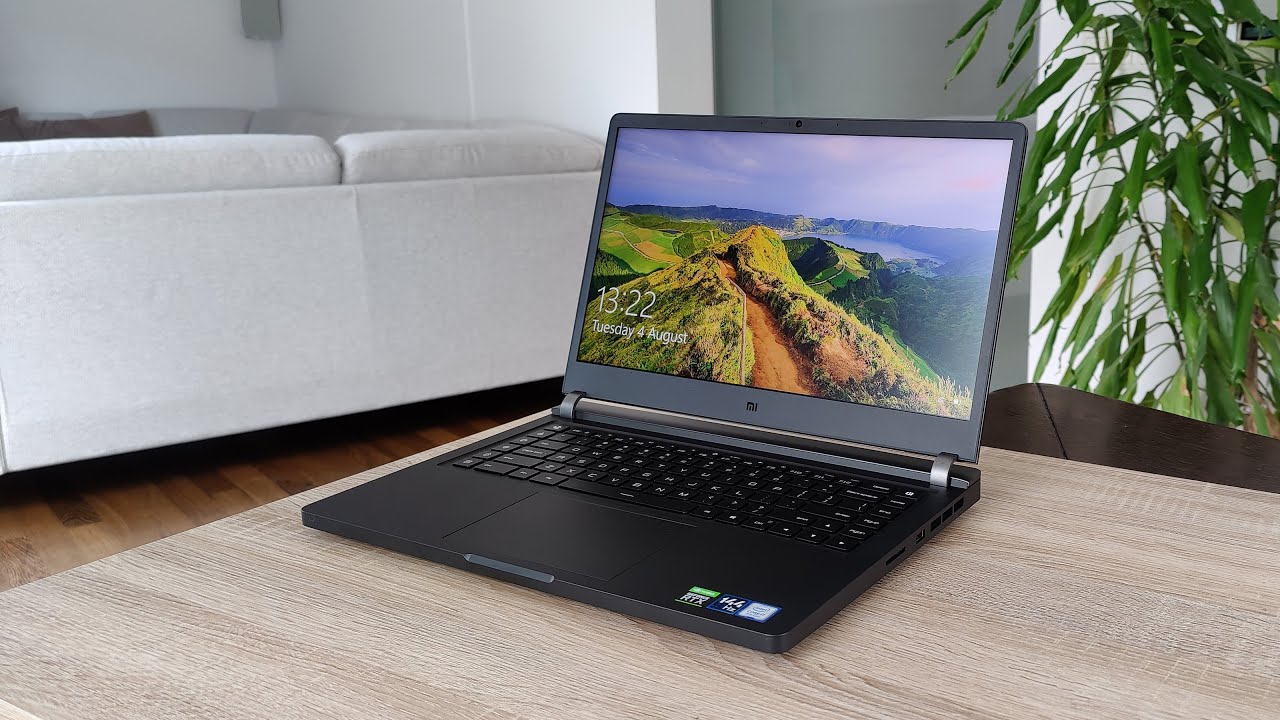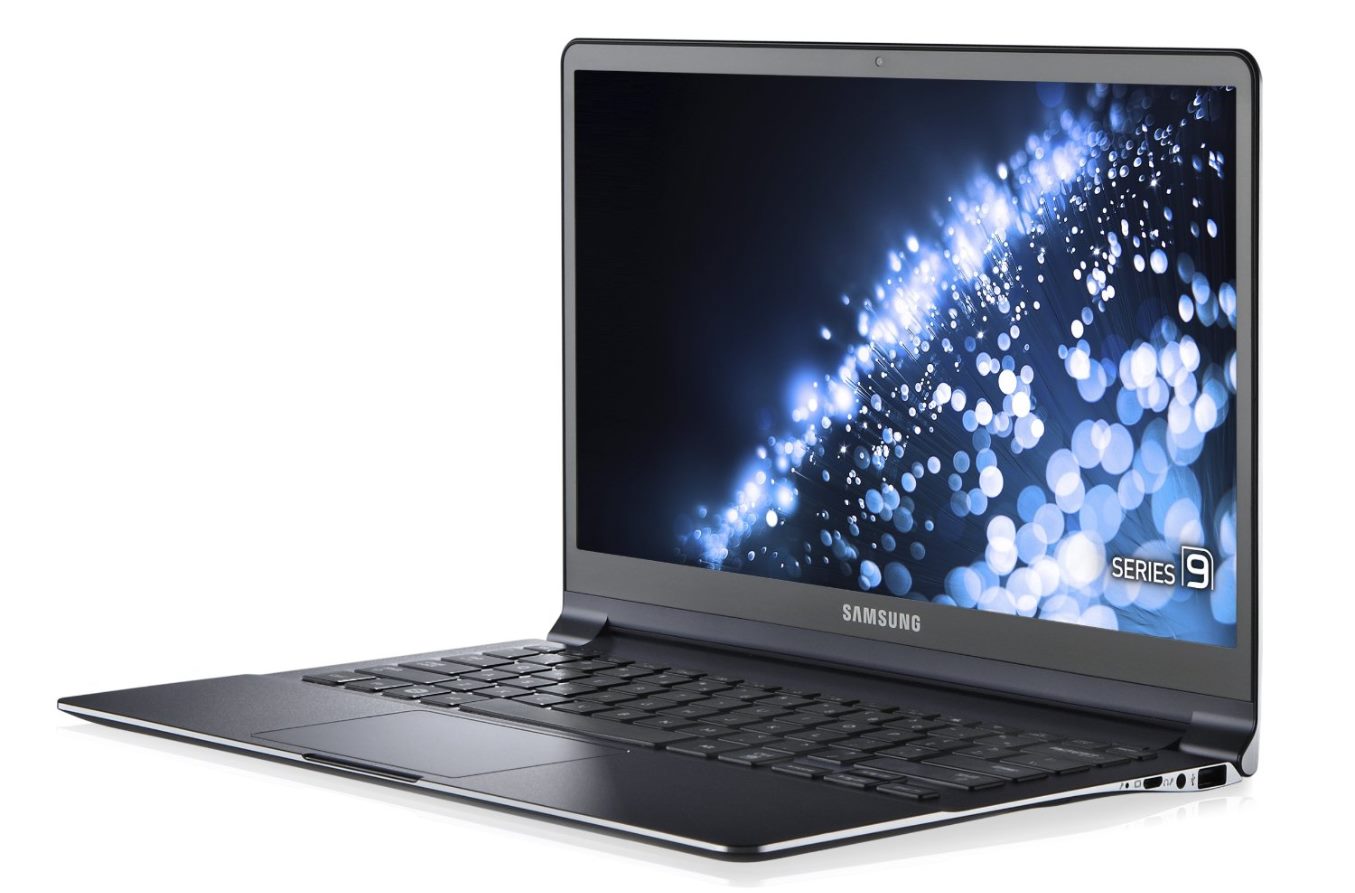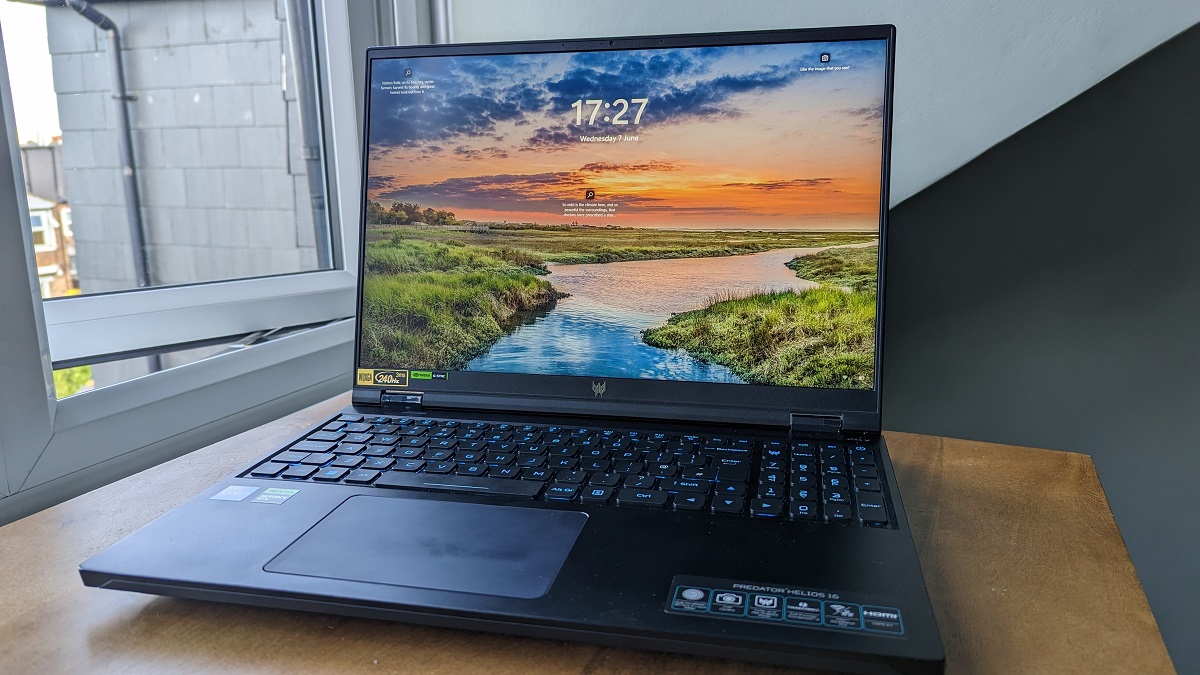Introduction
Gaming laptops have become increasingly popular among avid gamers and tech enthusiasts. Their portability and powerful processing capabilities make them ideal for gaming on-the-go. However, one concern that often arises is how long the battery of a gaming laptop can last. After all, no one wants their gaming session to be cut short due to a drained battery.
When it comes to battery life, it’s essential to understand that gaming laptops typically have different battery capacities compared to regular laptops. This is because gaming laptops require more power to run demanding games and graphics. The battery life of a gaming laptop can vary significantly depending on various factors, such as the type and capacity of the battery, the intensity of the games being played, and the power management settings.
Understanding the average battery life of a gaming laptop can help you plan your gaming sessions and make informed decisions about when and where to game. Additionally, knowing how to optimize and extend the battery life of your gaming laptop can ensure that you get the most out of your gaming experience, even when you’re away from a power outlet.
In this article, we will explore everything you need to know about the battery life of gaming laptops. We will discuss the different types of batteries commonly found in gaming laptops, the average battery life you can expect, the factors that can affect battery life, and essential tips to maximize your gaming time on battery power. Whether you’re a casual gamer or a hardcore enthusiast, this guide will provide you with the knowledge you need to make the most of your gaming laptop’s battery life.
Battery Types and Capacity
When it comes to gaming laptop batteries, there are typically two types: lithium-ion (Li-ion) batteries and lithium-polymer (Li-poly) batteries. Both types offer advantages in terms of energy density, weight, and charging capability. However, Li-poly batteries are often favored in gaming laptops due to their higher energy density and lower weight.
The capacity of a battery is typically measured in milliampere-hours (mAh) or watt-hours (Wh). Higher capacity batteries can hold more charge, resulting in extended battery life. Gaming laptops usually come with battery capacities ranging from 4000mAh to 8000mAh or more, depending on the specific model and brand.
It’s important to note that the battery capacity alone does not determine the battery life of a gaming laptop. Other factors, such as the power consumption of the components, the intensity of the games being played, and the power management settings, can also affect how long the battery lasts.
While gaming laptops may have larger battery capacities compared to regular laptops, it’s crucial to manage your expectations. Intensive gaming sessions can quickly drain even the most high-capacity batteries. It’s always a good idea to have access to a power outlet or a backup power source if you plan on gaming for an extended period without access to electricity.
Understanding the type and capacity of your gaming laptop’s battery is the first step in determining its expected battery life. In the following sections, we will delve into the average battery life of gaming laptops and the factors that can influence it.
Average Gaming Laptop Battery Life
The average battery life of a gaming laptop can vary significantly depending on several factors. On average, gaming laptops can provide anywhere from 2 to 6 hours of battery life during intense gaming sessions. However, it’s essential to note that this can vary depending on the specific laptop model, battery capacity, and the intensity of the games being played.
Some gaming laptops with high-performance components may have shorter battery life due to the increased power consumption required to run demanding games. Conversely, gaming laptops with lower-powered components may offer longer battery life but may struggle to handle more resource-intensive games.
It’s worth mentioning that gaming laptops are designed to prioritize performance over battery life. The powerful processors, dedicated graphics cards, and high-resolution displays take a toll on the battery. Therefore, it’s common for gaming laptops to have lower battery life compared to regular laptops used for basic tasks such as web browsing or document editing.
Another factor to consider is whether your gaming laptop supports adaptive sync technologies such as NVIDIA G-Sync or AMD FreeSync. While these technologies enhance the gaming experience by reducing screen tearing and improving smoothness, they can have a slight impact on battery life as they require additional processing power.
Additionally, the screen brightness and volume level also affect battery life. Higher brightness settings and louder audio output will consume more battery power. It’s a good practice to adjust these settings based on your environment and preference to optimize battery usage.
As gaming laptops continue to evolve, manufacturers are making strides in improving battery technology and efficiency. However, it’s important to manage your expectations when it comes to the battery life of a gaming laptop. It’s always advisable to plan your gaming sessions accordingly and have access to a power source if you need to game for longer periods.
In the next section, we will discuss the various factors that can influence the battery life of a gaming laptop.
Factors Affecting Battery Life
Several factors can significantly impact the battery life of a gaming laptop. Understanding these factors can help you manage your battery usage and make informed decisions to maximize your gaming time on battery power. Here are some key factors that influence the battery life of a gaming laptop:
1. Game intensity: The level of graphics and processing required by a game has a direct impact on battery life. Highly demanding games with advanced graphics, complex physics simulations, and a large number of characters or objects on-screen tend to consume more power and drain the battery faster than less intensive games.
2. Background processes: Background processes running on your gaming laptop, such as antivirus scans or software updates, can consume system resources and drain the battery faster. It’s important to ensure that unnecessary background processes are minimized while gaming to optimize battery usage.
3. Power management settings: The power management settings on your gaming laptop can greatly affect battery life. Adjusting settings such as screen brightness, sleep timers, and processor power management can help conserve battery power during gaming sessions. Experimenting with these settings to find the right balance between performance and battery life can be beneficial.
4. Cooling system: Gaming laptops generate a significant amount of heat during intense gaming sessions. The cooling system’s efficiency can affect both performance and battery life. Inadequate cooling can cause the components to work harder, consuming more power and reducing battery life. Ensuring proper airflow and regularly cleaning the cooling system can contribute to better battery performance.
5. Battery health: Over time, the capacity and performance of a battery naturally degrade. The age of the battery and the number of charge cycles it has gone through can impact its overall health. A deteriorating battery may not hold a charge as effectively, resulting in reduced battery life. Keeping an eye on battery health and considering replacement if necessary can help maintain optimal performance.
While these factors play a significant role, it’s important to remember that every gaming laptop behaves differently based on its specific hardware configuration and battery capacity. Testing and monitoring your laptop’s battery performance can provide valuable insights into the factors that specifically affect your gaming laptop’s battery life.
In the next section, we will provide some tips on how to extend the battery life of your gaming laptop during gaming sessions.
Tips to Extend Battery Life
While gaming laptops are known for their power-hungry nature, there are several tips and strategies you can employ to extend the battery life and optimize your gaming sessions. Here are some effective tips to help you get the most out of your gaming laptop’s battery:
1. Optimize power management settings: Adjusting the power management settings on your gaming laptop can have a significant impact on battery life. Lowering the screen brightness, enabling power-saving modes, and setting sleep timers can help conserve battery power during gaming sessions. Experiment with different settings to find the right balance between performance and battery life.
2. Close unnecessary background applications: Before starting your gaming session, make sure to close any unnecessary background applications and processes. Programs running in the background can consume system resources and drain your battery faster. Check your task manager to identify and close any unnecessary applications that might be running and hogging resources.
3. Disconnect peripherals: Connected peripherals such as external monitors, gaming controllers, or USB devices can consume additional power. Disconnecting any unnecessary peripherals during your gaming session can help preserve your battery life. Only connect the peripherals that are essential for your gaming experience.
4. Lower graphics and resolution settings: Adjusting the graphics and resolution settings in your games can significantly impact battery life. Higher graphics settings require more processing power, leading to increased power consumption. Lowering these settings can help reduce the strain on your laptop’s components and prolong battery life without sacrificing too much visual quality.
5. Use a cooling pad: Gaming laptops tend to generate significant heat during intensive gaming sessions. Using a cooling pad can help dissipate heat more effectively, preventing your laptop from overheating. A cooler laptop operates more efficiently, consuming less power and potentially extending battery life.
6. Keep your laptop clean: Dust and debris can accumulate in the vents and cooling system of your gaming laptop, hindering proper airflow and causing the components to work harder. Regularly clean the vents and ensure proper airflow to prevent overheating. An overheating laptop not only reduces performance but also consumes more power, impacting battery life.
7. Use battery-saving software: Some gaming laptops come with built-in battery-saving software. These software applications can help optimize power usage during gaming sessions. They may offer features like disabling unnecessary background services or adjusting system settings to maximize battery life. Utilizing such software can be beneficial in extending your gaming laptop’s battery life.
By implementing these tips, you can significantly extend the battery life of your gaming laptop during gaming sessions. However, it’s important to remember that gaming laptops are designed for high-performance gaming, and battery life will inherently be shorter compared to regular laptops. Therefore, consider having a power outlet nearby or a portable charger as a backup for longer gaming sessions.
In the next sections, we will discuss the impact of gaming on battery life, the importance of battery health, and how to maximize gaming time on battery power.
Power Management Settings
Managing the power settings of your gaming laptop is crucial for optimizing battery life during gaming sessions. Customizing the power management settings can help strike a balance between performance and battery conservation. Here are some key power management settings to consider:
1. Screen brightness: The display is one of the most power-consuming components of a gaming laptop. Lowering the screen brightness can significantly reduce power consumption and extend battery life. Adjust the brightness settings based on your environment and personal preference without compromising the visibility of the screen.
2. Sleep timers: Setting a shorter sleep timer can help conserve battery power when your gaming laptop is idle for a few minutes. The laptop will automatically go into sleep mode, reducing power consumption. However, it’s essential to strike a balance between conserving battery and minimizing interruptions during gameplay.
3. Power-saving mode: Enabling power-saving mode activates various power-saving features, such as lower CPU performance, reduced screen brightness, and disabled background applications. While this mode may impact gaming performance to some extent, it can significantly extend battery life during gameplay. Remember to adjust power-saving settings to find the ideal balance between performance and battery conservation.
4. Processor power management: Adjusting the processor power management settings can have a noticeable impact on battery life. Consider setting the maximum processor state to a lower percentage (e.g., 80%) or enabling the “Power Saver” mode to reduce CPU power consumption. Keep in mind that this may slightly affect gaming performance, so experiment to find the optimal settings for your preferences.
5. Wi-Fi and Bluetooth: Disabling Wi-Fi and Bluetooth when not needed can save significant battery power. Gaming sessions typically don’t require stable internet connections or Bluetooth devices, so turning them off can help prolong battery life. Enable them only when necessary, such as for multiplayer gaming or connecting wireless peripherals.
6. Graphics settings: Adjusting the graphics settings in your games can have a substantial impact on power consumption. Lowering the graphics quality, reducing anti-aliasing, or adjusting texture resolutions can significantly reduce power usage. Experiment with these settings to strike a balance between performance and battery life without compromising the gaming experience too much.
7. Background processes: Minimize or close unnecessary background processes and applications before gaming. Background processes consume valuable system resources and drain battery power. Closing unnecessary programs and tasks not only saves power but also ensures a smoother gaming experience with fewer interruptions.
Remember to customize the power management settings based on your specific gaming needs and preferences. Every gaming laptop may have slightly different power management options and configurations. Experiment with different settings and find the combination that works best for you, balancing performance and battery life.
In the following sections, we will delve into the impact of gaming on battery life, the importance of battery health, and how to maximize your gaming time on battery power.
Impact of Gaming on Battery Life
Gaming is a resource-intensive activity that can have a significant impact on the battery life of your laptop. The power-hungry nature of gaming, coupled with the demanding system requirements of modern games, can quickly drain your battery. Here are some key factors that contribute to the impact of gaming on battery life:
1. CPU and GPU usage: Games require substantial processing power, especially for rendering graphics and performing complex calculations. The more demanding the game, the higher the CPU and GPU usage, and subsequently, the more power the laptop consumes. This increased power consumption can result in shorter battery life during gaming sessions.
2. Display brightness and resolution: The brightness level and screen resolution directly impact power consumption. Higher brightness settings and higher resolutions require more power to display crisp visuals. To conserve battery life, consider lowering the screen brightness and optimizing the resolution settings without compromising the overall gaming experience.
3. Gaming peripherals: Gaming peripherals, such as RGB keyboards, gaming mice, and external controllers, often have their own power requirements. These peripherals consume additional power when connected to your gaming laptop. Disconnect any unnecessary peripherals to minimize power drain and extend battery life.
4. Network connectivity: Online gaming and multiplayer modes require a stable internet connection. Wi-Fi or Ethernet connections consume power to maintain network activity. While the impact may be relatively small compared to other factors, it’s still worth considering if you’re looking to optimize battery life. If gaming offline, consider disabling Wi-Fi or Ethernet to conserve power.
5. Cooling system: Gaming sessions put significant strain on your laptop’s cooling system. The CPU and GPU work harder during gaming, generating more heat. As the cooling system works to dissipate this heat, it consumes additional power. Ensuring proper cooling and minimizing excessive heat buildup can help reduce power consumption and extend battery life.
It’s important to note that the impact of gaming on battery life can vary depending on the specific game, the hardware configuration of your gaming laptop, and the power management settings. Some games may be more power-hungry than others, while some laptops may have more efficient cooling systems or advanced power-saving features.
When planning your gaming sessions, it’s advisable to keep your laptop plugged into a power source if possible. This ensures uninterrupted gaming without worrying about battery life. However, if you need to game on battery power, optimizing power settings, minimizing background processes, and making conscious decisions about graphics and performance settings can help maximize your gaming time.
In the next section, we will discuss the importance of battery health and how to ensure your gaming laptop’s battery remains in optimal condition.
The Importance of Battery Health
The health of your gaming laptop’s battery plays a critical role in determining its overall performance and lifespan. Maintaining a healthy battery is essential for optimal power delivery, longer battery life, and the longevity of your gaming laptop. Here are some reasons why battery health is important:
1. Extended battery life: A healthy battery can hold a charge more effectively, resulting in longer battery life. Over time, batteries naturally degrade, and their capacity to hold a charge diminishes. By taking care of your battery and ensuring its health, you can maximize the amount of gaming time you get on a single charge.
2. Consistent power delivery: A deteriorating battery may not be able to deliver power consistently to your gaming laptop. This can lead to unexpected shutdowns or fluctuations in performance during gaming sessions. A healthy battery provides stable power, ensuring a smooth and uninterrupted gaming experience.
3. System stability: Battery health is closely tied to the overall stability of your gaming laptop. As batteries degrade, they may struggle to meet the power demands of the components during gaming, leading to system instability or crashes. By maintaining a healthy battery, you can minimize such issues and ensure a reliable gaming experience.
4. Longevity of the laptop: The health of your battery can also impact the overall lifespan of your gaming laptop. A deteriorating battery may not only impact performance but also put strain on other components as they compensate for power fluctuations. By properly caring for your battery, you can help prolong the lifespan of your gaming laptop.
To maintain optimal battery health, follow these best practices:
1. Avoid extreme temperatures: Exposing your gaming laptop to extreme temperatures, such as excessive heat or freezing cold, can negatively impact battery health. Keep your laptop in a cool and well-ventilated area to prevent overheating and avoid extreme temperature fluctuations.
2. Charge properly: Overcharging or undercharging your gaming laptop’s battery can affect its health. Follow the manufacturer’s guidelines and avoid leaving your laptop connected to the charger for extended periods once it reaches full charge. Similarly, avoid fully draining the battery frequently as it can lead to premature wear.
3. Clean and maintain the battery: Periodically clean the battery contacts and ventilation ports to ensure proper airflow. Dust and debris can accumulate, hindering heat dissipation and leading to elevated temperatures that can affect battery performance and health.
4. Avoid deep discharges: While it’s good to avoid fully draining your battery too frequently, it’s also advisable to avoid keeping the battery at very low charge levels for extended periods. If you don’t plan on using your gaming laptop for an extended time, ensure the battery has at least a partial charge to maintain its health.
By following these practices, you can help preserve the health and performance of your gaming laptop’s battery, ensuring optimal power delivery, longer battery life, and a reliable gaming experience.
In the next section, we will discuss how to maximize your gaming time when relying on battery power.
Signs of a Deteriorating Battery
Over time, the battery of your gaming laptop may start to deteriorate due to natural wear and tear. It’s essential to be aware of the signs indicating a deteriorating battery so that you can take appropriate action or seek a replacement when necessary. Here are some common signs of a deteriorating battery:
1. Reduced battery life: One of the most evident signs of a deteriorating battery is a significant decrease in battery life. If you notice that your gaming laptop can no longer hold a charge for as long as it used to or if it drains quickly even during light usage, it could indicate that the battery’s health has declined.
2. Frequent shutdowns: A deteriorating battery may struggle to provide a consistent power supply to your gaming laptop. This can result in unexpected shutdowns, even when your battery still shows a substantial charge. If your gaming laptop frequently shuts down without warning, it might be a sign that the battery is no longer able to sustain the power demands.
3. Difficulty charging: If you face difficulties in charging your gaming laptop battery or notice that the charge percentage increases very slowly despite being connected to a power source, it could indicate a problem with the battery. In some cases, the battery may not charge at all, indicating a more severe deterioration.
4. Swollen or bulging battery: Physical changes in the battery can be a clear sign of deterioration. A swollen or bulging battery is a serious concern and should be addressed immediately. If you notice any unusual changes in the shape or appearance of your gaming laptop’s battery, stop using it and seek professional assistance.
5. Overheating: Deteriorating batteries can generate more heat than usual, leading to increased temperatures within your gaming laptop. If you experience excessive heat buildup while using your laptop, especially around the area where the battery is located, it could indicate a deteriorating battery.
6. Inconsistent battery percentage: A battery that fluctuates in charge percentage without any significant changes in usage can be another sign of a deteriorating battery. For example, your battery might show 70% charge one moment and suddenly drop to 30% without any significant change in power usage.
If you notice any of these signs, it’s important to address them promptly. Start by checking your gaming laptop’s warranty to see if the battery is covered for a replacement. If not, consult a professional technician who can assess the battery’s health and recommend a suitable solution, which may involve replacing the battery.
Regular battery maintenance, such as avoiding extreme temperatures, following proper charging practices, and keeping the battery clean, can help prolong its lifespan. However, it’s essential to be prepared for the eventuality of a deteriorating battery and take the necessary steps to maintain your gaming laptop’s performance and reliability.
In the next section, we will discuss how to maximize your gaming time while relying on battery power.
How to Maximize Gaming Time on Battery Power
When you’re gaming on battery power, it’s crucial to make the most of the limited charge available. Maximizing your gaming time requires a combination of smart power management and optimizing your gaming settings. Here are some key tips to help you get the most out of your gaming laptop’s battery:
1. Optimize power settings: Adjusting the power management settings of your gaming laptop is essential for maximizing battery life. Reduce screen brightness, enable power-saving modes, and adjust sleep timers to conserve power during gameplay. Experiment with different settings to strike a balance between performance and battery conservation.
2. Lower graphics settings: Adjusting the graphics settings in your games can significantly impact power consumption. Lowering graphics quality, reducing anti-aliasing, or adjusting texture resolutions can help reduce the strain on your laptop’s components and extend battery life without sacrificing much in terms of visual quality.
3. Disable background applications: Close any unnecessary background applications and processes that may be running while gaming. These programs consume system resources and drain battery power. Use your task manager to identify and close any non-essential applications, ensuring that your gaming session focuses solely on the game itself.
4. Use a cooling pad: Intense gaming sessions can generate a significant amount of heat, which puts a strain on your laptop’s components and increases power consumption. Using a cooling pad can help keep your laptop’s temperature down, improve overall performance, and potentially extend battery life. Ensure proper ventilation and avoid obstructing the cooling vents.
5. Limit network activity: Gaming on battery power does not usually require a stable internet connection. Consider playing offline or minimizing network-dependent activities to conserve battery life. Disabling Wi-Fi or Ethernet connectivity when not needed can significantly reduce power consumption and extend gaming sessions on battery power.
6. Full-screen mode: Playing games in full-screen mode can help optimize battery usage. Full-screen mode allows the game to have exclusive access to your system resources, reducing power draw from other applications running in the background. This can result in better performance and improved battery efficiency.
7. Monitor battery usage: Keep an eye on your gaming laptop’s battery usage while gaming. Most operating systems provide tools or utilities that allow you to monitor battery usage and see which applications consume the most power. By identifying power-hungry processes, you can make informed decisions to close them or adjust their settings to optimize battery life.
By implementing these tips, you can maximize your gaming time on battery power and enjoy uninterrupted gaming sessions while away from a power outlet. However, it’s important to keep in mind that gaming on battery power will always have limitations compared to gaming on AC power. Plan your gaming sessions accordingly and consider having a backup power source or charger available for extended gaming sessions.
In the final section, we will wrap up our discussion and provide some concluding thoughts on optimizing battery life for gaming laptops.
Final Thoughts
Gaming on a laptop offers the flexibility to enjoy your favorite games anywhere, but it also comes with the challenge of managing battery life. Understanding the factors that affect battery life, optimizing power management settings, and taking care of your gaming laptop’s battery health are key to maximizing gaming time on battery power.
While gaming laptops are designed for high-performance gaming, their battery life is typically shorter compared to regular laptops. Intensive gaming sessions can quickly drain the battery, so it’s important to plan your gaming sessions accordingly and have a backup power source or charger available if needed.
Adjusting power management settings, lowering graphics settings, closing unnecessary background processes, and using cooling pads are effective ways to optimize battery usage during gaming. Additionally, monitoring battery usage and taking proper care of your battery, such as avoiding extreme temperatures and following proper charging practices, can help maintain its health and prolong its lifespan.
Remember, every gaming laptop may have slight variations in power management settings and battery performance, so it’s essential to find the right balance that works for your specific gaming laptop and preferences.
Ultimately, by implementing the tips and strategies discussed in this article, you can make the most of your gaming laptop’s battery life, ensuring a smooth and enjoyable gaming experience whether you’re gaming on the go or away from a power outlet.
So, go ahead, unleash your gaming skills, and enjoy gaming sessions with confidence, knowing that you’re making the most of your gaming laptop’s battery power.










